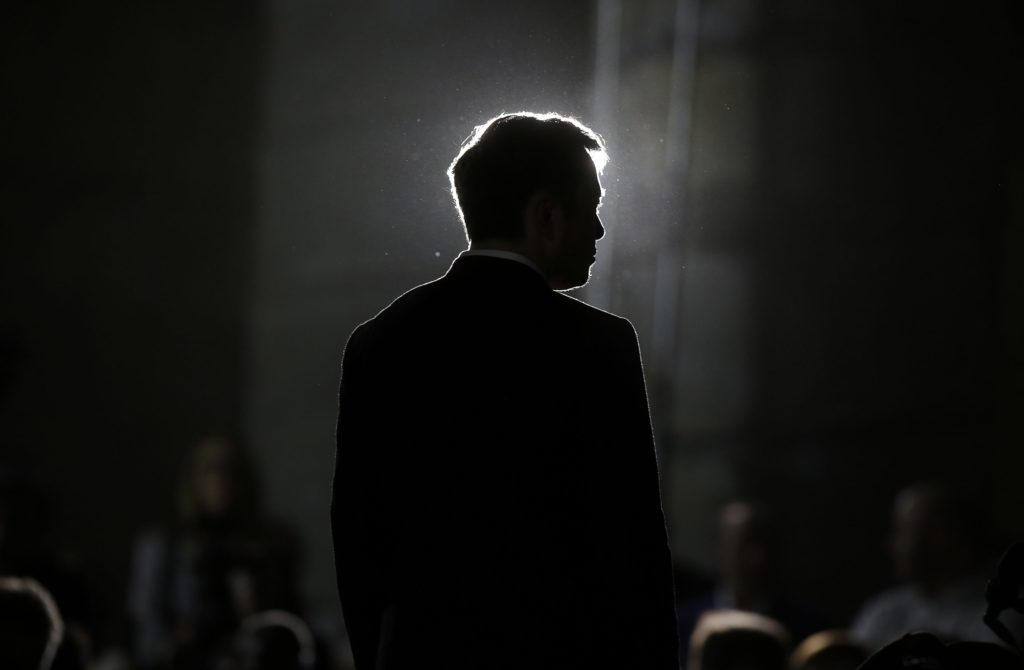Shareholders are losing patience with the self-described reluctant chief executive.
(Bloomberg) —
Elon Musk has said on several occasions lately — on Twitter, from a courtroom stand, on Twitter again, then back at the same court — that he doesn’t want to be a CEO.
He said so before and after he became the chief executive of a fifth company, which appears to have been one too many, at least for Tesla shareholders to stomach. Since April 4, the day Musk disclosed that he’d taken a stake in Twitter, the car and clean-energy company that accounts for a third of his net worth has lost about $749 billion of market value.
Taking a Twitter poll on whether he should step down as head of Twitter — and a decisive vote that found yes, he should — hasn’t stopped Tesla’s hammering. Overpaying for the social media company using tens of billions of his Tesla shares has proven disastrous. It hasn’t helped that Musk has oscillated from arguing that Twitter is doing better under his leadership, to describing it as in the fast lane toward bankruptcy, or that he’s repeatedly assured his followers that he was done selling Tesla stock, only to then dump more again and again.
When will Tesla’s shareholders or board of directors conclude that enough is enough? Some are already there.
“As his fanboy, I invested [because] of Elon,” Leo KoGuan, one of Tesla’s biggest individual shareholders, tweeted last week. “Of course, I prefer Elon to be CEO but he abandoned Tesla.”
There’s been no indication Tesla directors feel the same. Several members of the board, including his brother Kimbal, have stood by Musk through it all: the regrettable SolarCity acquisition, the April Fools’ Day tweeting about Tesla going bankrupt, the calling a critic a pedophile.
After Musk made the false and reckless claim he had the funding to take Tesla private, the Securities and Exchange Commission tried to strengthen Tesla’s corporate governance by removing him as chairman and forcing the board to add two independent directors. The effort was doomed from the start — one of the directors added was billionaire Larry Ellison, Musk’s friend and confidant, who left the board less than four years later. He and other directors said nothing publicly about Musk telling 60 Minutes he didn’t respect the SEC, or using the initials of the agency to refer to himself receiving oral sex.
Privately, Ellison and other fans of Musk’s have explained away Musk’s behavior to Jeffrey Sonnenfeld, the senior associate dean of leadership programs at the Yale School of Management. After all, had the professor ever managed to fly rockets into space and land them upright back on Earth?
“It’s true, I haven’t been able to do that, and you have to acknowledge the engineering genius and entrepreneurial will that he has is exceptional,” Sonnenfeld said of Musk in a phone interview. “It’s historic, and the world is, on balance, somewhat better off that he’s on the planet.”
That said, the Twitter poll Musk has vowed to abide by was just one of the recent votes against him. Last week, Sonnenfeld hosted the Yale Chief Executive Leadership Institute’s annual CEO summit, where chairmen, presidents and CEOs responded confidentially to questions on a range of topics dominating business news headlines.
Musk didn’t fare well among 100 of his peers: 98% said he overpaid for Twitter; 79% said he’d become a detriment to the value of the companies he runs; 56% think companies should stop advertising on Twitter.
“There have been some standout technological triumphs,” Sonnenfeld said of Musk’s track record. “But we could match each and every one of them with 10 failures that the media looks past because he dangles the new, shiny object and distracts you.”
Where, for example, are the 1 million robotaxis that Musk said almost four years ago would be on the road three years ago? Where is the Roadster (Sonnenfeld calls it “the Chitty Chitty Bang Bang car”) that Musk claimed would be able to fly, packing SpaceX thrusters in place of the rear seats? The CEO showed a prototype five years ago and promised a launch two years ago. It has yet to hit the market.
“Tesla is executing better than ever!” Musk tweeted last week in response to a shareholder who quarreled with him on Tuesday. “We don’t control the Federal Reserve. That is the real problem here.”
Investors haven’t been buying that argument, perhaps since Musk has provided ample evidence that he’s preoccupied with Twitter. On the day he fell from the top spot on the Bloomberg Billionaires Index, Musk dropped in on a Twitter Spaces with Marc Andreessen and other admirers, spending about 25 minutes talking artificial intelligence, his approach to using and running the social media service, the boos he got on stage at Dave Chappelle’s stand-up show in San Francisco, and how much punishment Sam Bankman-Fried deserves.
Tesla didn’t come up until the very end.
“Speaking of Tesla,” Musk said. “I have a Tesla meeting that I’m late for. I have to step off.”
More stories like this are available on bloomberg.com
©2022 Bloomberg L.P.











